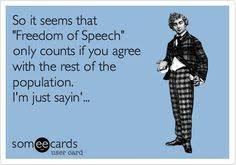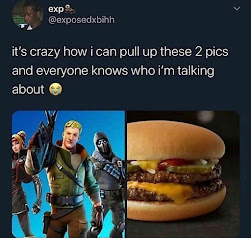 Many changes have occurred in the United States in relation to our 1st amendment. Women can now vote. Women can wear clothing other than dresses and body positivity has blown up tremendously. Yet, when it comes to the music industry, the double standard still exists. Rappers like Travis Scott can speak of women and what a man can do to a woman sexually, and it is deemed as just the 'normal' current music people listen to.
Many changes have occurred in the United States in relation to our 1st amendment. Women can now vote. Women can wear clothing other than dresses and body positivity has blown up tremendously. Yet, when it comes to the music industry, the double standard still exists. Rappers like Travis Scott can speak of women and what a man can do to a woman sexually, and it is deemed as just the 'normal' current music people listen to. Yes, both men and women artists have that freedom to speak and sing about whatever they wish in their music, yet when women make a more explicit song like that of their male counterparts, they are shamed for it. Like that of Cardi B and her song WAP; as you see above in the photo, she got a lot of backlash for making that song. Yet a male artist can explicitly sing about women doing things for them and vise versa, and fewer people bat an eye on that.
In fact, their songs can even get praise. Travis Scott's song Out West got put into Fortnite, a video game that many children play. Of course the explicit parts are bleeped out, but the song is still getting praised. If the double standard is just a myth, then shouldn't Cardi B's song be on that game too? Shouldn't it be allowed for the song to be played at a skating rink, too?







This is such an important topic when it comes to freedom of speech! Having freedom of speech or expression is a fundamental right, but it also allows others to judge us or demonize us for our opinions. I agree there is a huge double standard within many entertainment industries between men and everyone else, be it women, trans, or nonbinary artists. I think this double standard speaks to the culture of the United States as well; movies rated PG-13 can be full of blood and gore or hateful rhetoric, but can only have a single 'f-bomb' to maintain an "appropriate" audience. Why are we so willing to accept violence, but are so abhorred by sex? And specifically, why are women judged for having a liberal sex life whereas men are praised for it? This is a topic that largely examines the framework in which free speech can be utilized, or the question of if something can be deemed 'explicit' or unprotected by freedom of speech depending on the person, rather than the idea.
ReplyDeleteAs someone who is involved in the music world, this feels extremely relevant! For years, female musicians have been suppressed. The first thing that I can think of is Taylor Swift and her dispute with her music producer. Many women, even when perceived as having control over their voice but in reality they aren't. It's unfortunate that this holds true in pretty much every other industry as well. Women's voices aren't really seen or treated as being equal or free.
ReplyDeleteYour experience with music requests at a skating rink provides such an interesting lens to examine this issue of gendered double-standards! I think that our attitudes toward this issue are probably a relic of chastity/purity standards for women. This reminds me of Tumblr's "adult content" ban (which I put in quotations because its algorithmic rollout implicated all nudity, even in artistic/non-sexual contexts), which banned "female-presenting nipples"--hilarious, faux-progressive wording aside, I think it's another example of men and women being held to different standards of "appropriateness".
ReplyDeleteI love that you decided to talk about this topic because it expands so widely over so many topics! We were talking about something similar in ENG 491, about how there is obviously inequality between black and white people, but how there is also a substantial amount of inequality between black men and black women. I think this becomes more of a social justice issue than an issue about free speech, however. It seems to relate to the issue of "boys will be boys" while women are held to a much different and higher standard (particularly black women are viewed in a very specific way in terms of sex and explicitly of lyrics).
ReplyDelete